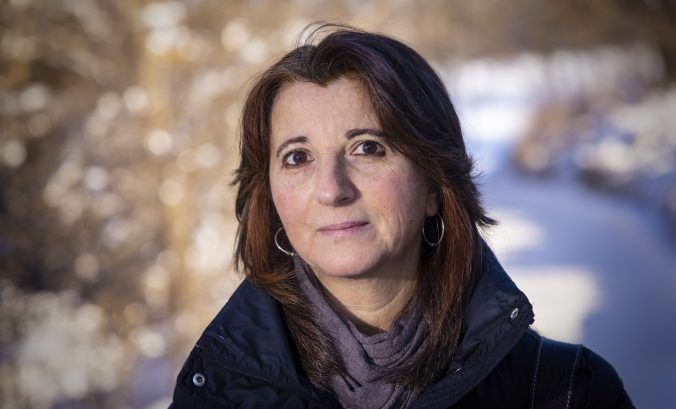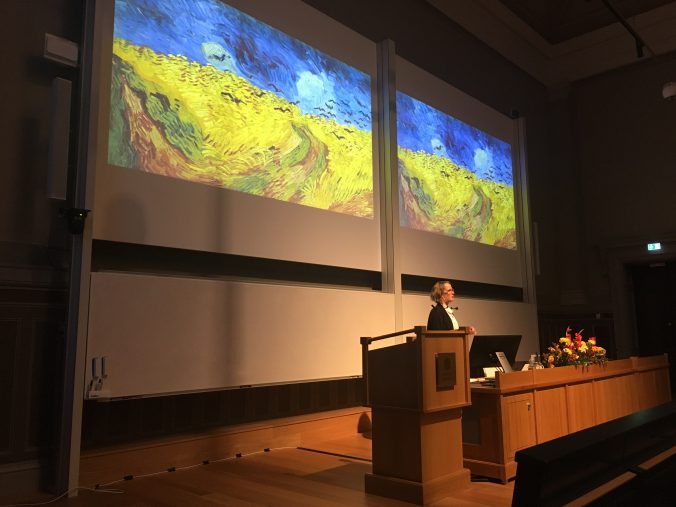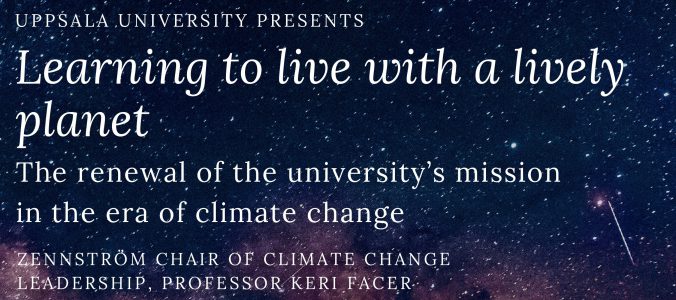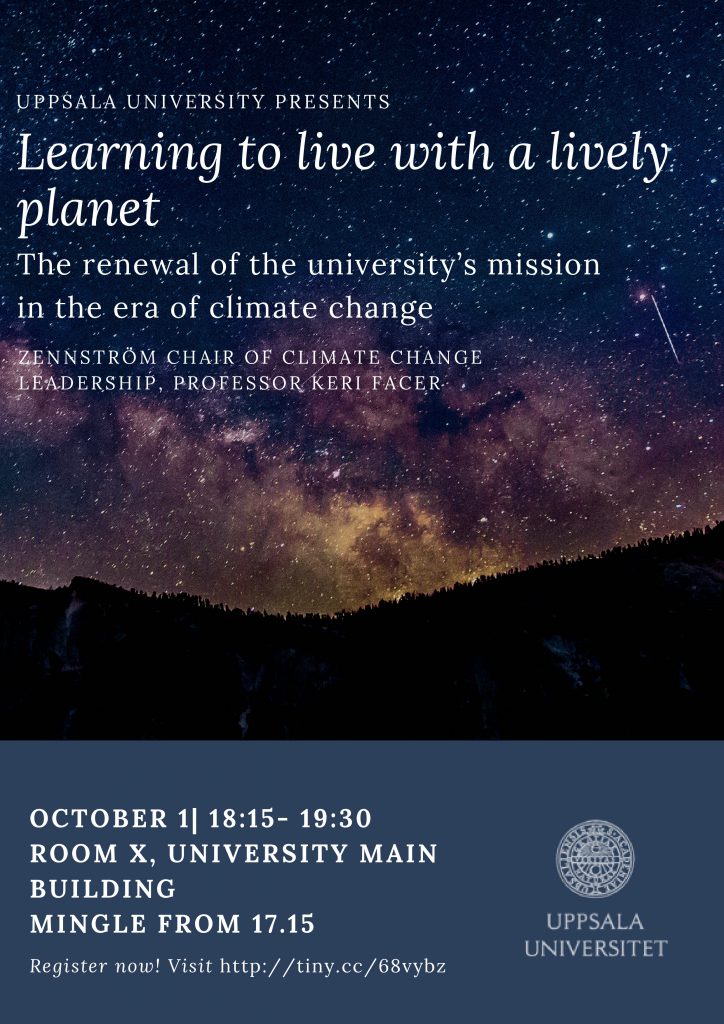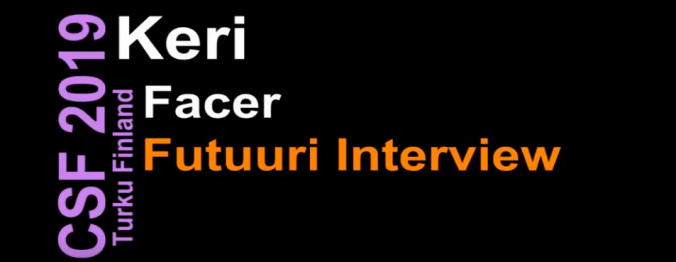Under Almedalsveckan 2024 deltog Anna Berg Grimstad och Mikael Karlsson för att arrangera samtal om klimat- och miljöomställningen och representera CCL’s forskningsprogram i det som gärna beskrivs som hjärtat av svensk demokrati. Nedan följer en reflekterande text skriven av Anna om hennes erfarenheter från dagarna i Visby. Länkar till inspelade seminarier finns i texten.

Vad tror ni, är det sista gången i Almedalen?
Frågan ställs försiktigt i kön till kaffet, i minuterna mellan seminarier och samtal i ett sommarvarmt Visby. Politikerveckan, vars syfte är att skapa ett öppet och demokratiskt samtalsrum, ifrågasätts ofta för sin relevans. Privata företag och mediejättar tar mer och mer plats på de publika scenerna. Samtidigt utspelar sig många samtal bakom låsta dörrar där det demokratiska utrymmet begränsas till de få som är inbjudna. Det är lätt att vara kritisk till klimatrubricerade seminarier som påminner om reklamkampanjer för storbolagen, men kanske är det just kritiken av och debatten runt Almedalen som håller liv i samtalet? Kanske föds viljan till att skapa arrangemang som väcker debatt och provokation av vetskapen om att samtalet brått kan ta slut?
För CCL börjar Almedalsveckan tisdag eftermiddag med rundabordssamtal inom forskningsprogrammet Navigate. Temat för samtalet är riktningen för svensk klimat- och miljöpolitik efter EU-valet. Samtalet fungerar som ett inspel till forskningsprogrammet i övrigt. Utöver att stimulera idéer för framtida forskning inom programmet sätter det också tonen för veckan som följer. Vi befinner oss i en tid av sammankopplade kriser. Sverige har lagt ledartröjan i klimat- och miljöpolitiken åsido samtidigt som just ledarskap behövs som mest.
Extrema klimathändelser och en rättvis klimatomställning
Programmet för CCL fortsätter onsdag förmiddag med ett första av två panelsamtal om extrema klimathändelser, arrangerat tillsammans med Gabriele Messori, professor i meterologi vid Institutionen för Geovetenskaper. Det första samtalet äger rum i en fullsatt undervisningssal på Campus Gotland. Temat är extrema klimathändelser på kommunnivå, och medarrangör är föreningen Klimatkommunerna. Den centrala frågan för stunden är vilket klimatledarskap som krävs på lokal nivå för att bemöta extrema klimathändelser?. Panelen består av lokalpolitiker från fyra olika partier och klimatkommuner: Strängnäs (S), Värmdö (MP), Lidköping (L) och Kristianstad (M), och moderator är Mikael Karlsson, CCL.
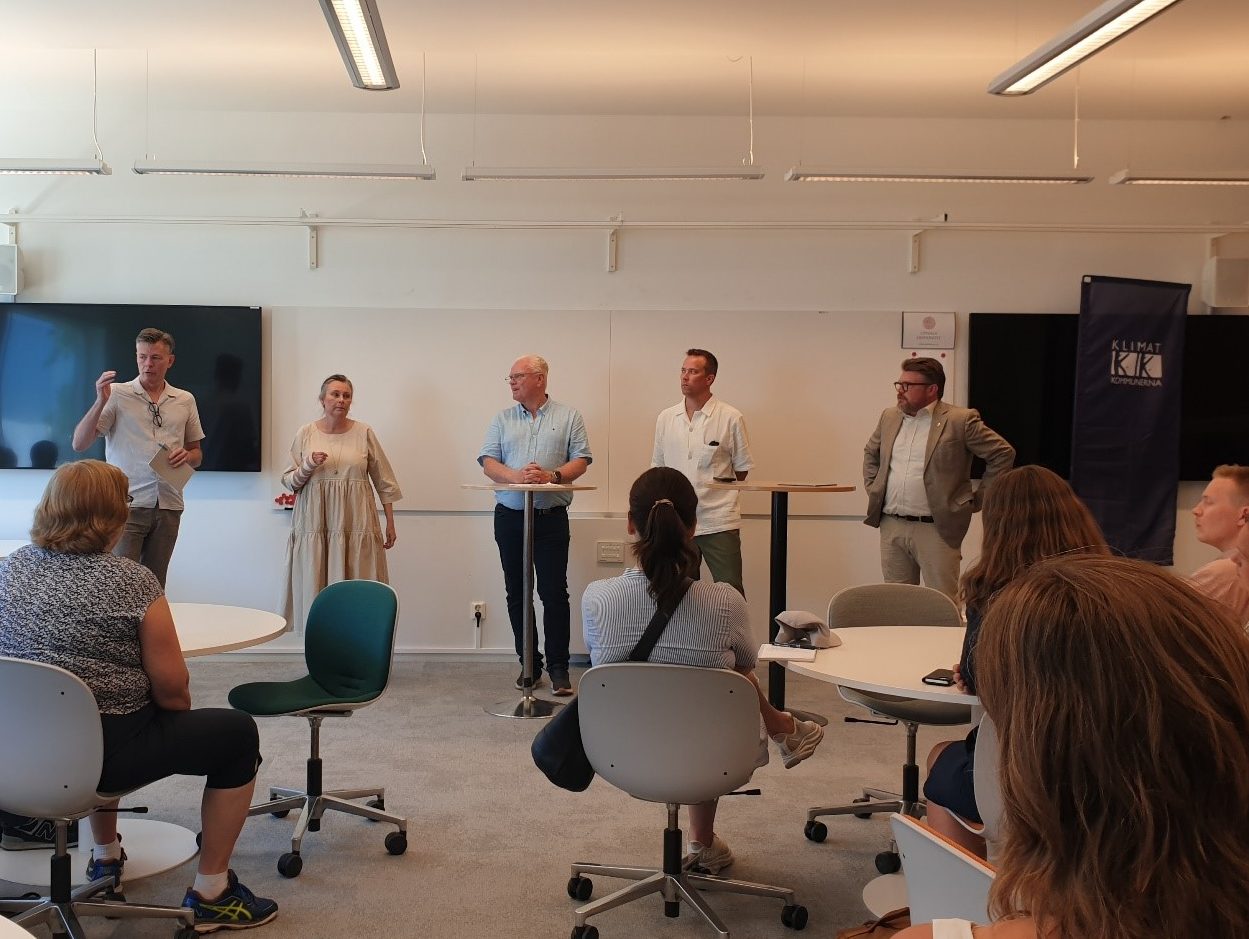
Under dryga 45 minuter pendlar samtalet mellan problem och lösningar, där lokala utmaningar och förutsättningar står i fokus. Först ut är Gabriele Messori som öppnar med en presentation om extrema klimathändelser. Forskningen visar att extrema väderfenomen som översvämningar ökar till följd av mänskligt orsakade klimatförändringar. Händelserna upplevs ofta lokalt, där människor bor. De innebär ökad press på lokala aktörer som arbetar med samhällsplanering och klimatarbete, exempelvis på kommunnivå.
Trots den geografiska spridningen mellan de fyra kommunerna, målar paneldeltagarna upp en likartad problembild. Extrema klimathändelser har blivit vanligare och sårbarheterna är många. Bland utmaningarna står frågor om vatten högt på agendan. Samtidigt finns en vilja bland panelen att agera för såväl minskade klimatutsläpp som klimatanpassning. Trots att anpassningsbehovet ökar på lokal nivå, vittnar kommunpolitikerna om att anpassningsfrågan befinner sig långt nere på riksdagens politiska dagordning. Mot samtalets slut kunde Mikael Karlsson summera ett budskap som på sätt och vis blev tonsättande för Almedalen 2024: Det finns ett tydligt engagemang för klimatet och en vilja att agera, men avsaknaden av riktning och resurser från nationell nivå bromsar det lokala arbetet.
Hur kan vi skapa en långsiktig och verksam klimatpolitik?
På väg till nästa seminarium reflekterar jag över de seminarier jag har varit på hittills. Utöver att de alla har berört frågor om klimat och miljö, finns en samstämmighet i slutsatserna. Avsaknaden av långsiktig stabilitet i klimatpolitiken och en gemensam vision för klimatomställningen lyftes dagen innan av Måns Nilsson, VD för Stockholm Environment Institute, i ett seminarium om regeringens klimatpolitik. Möjligheterna att koppla klimat- och miljöfrågor till frågor om säkerhet och självförsörjning togs bland annat upp när Aktuell Hållbarhet och Altinget diskuterade EU:s kommande politik efter valet i juni. Även om idéerna verkar flöda tycks lösningarna fastna i ett och samma spår om politiskt ledarskap. Den mycket aktuella frågan om hur vi lyckas genomföra en omställning som utgår från en rättvis och verksam klimatpolitik är därför temat för CCL:s nästa seminarium inom ramen för forskningsprogrammet FairTrans.
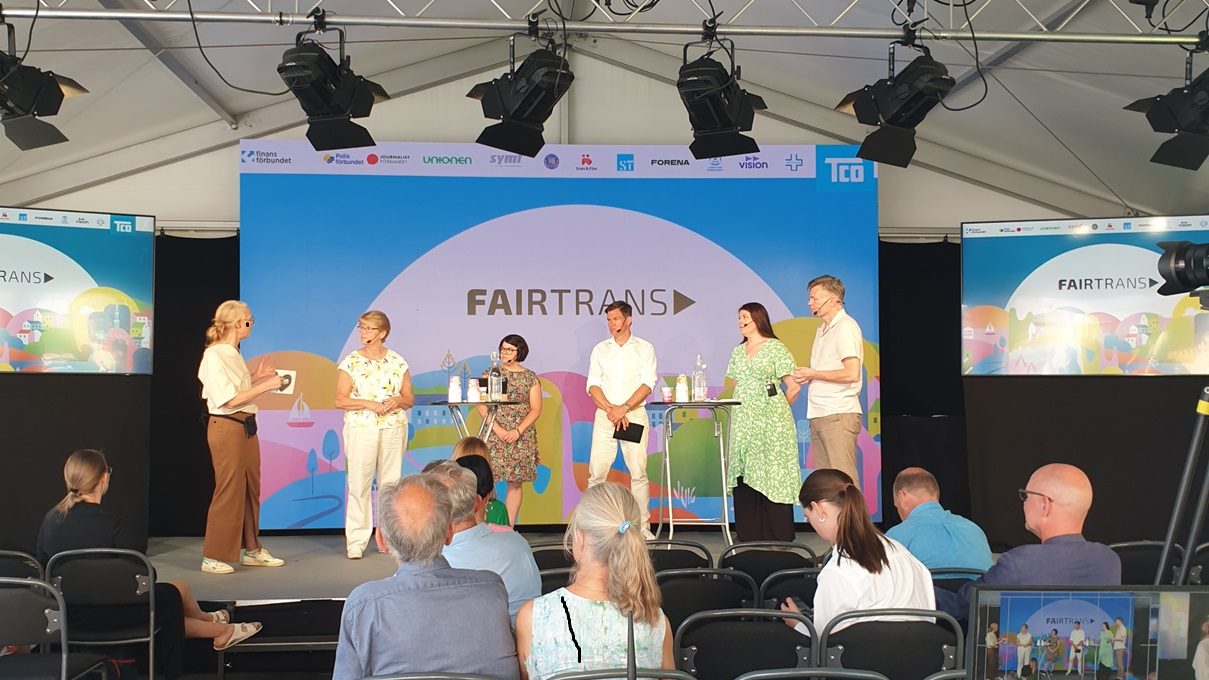
Under en timme leder Mikael Karlsson och Sofia Bernett (SU) ett samtal där FairTrans parter delar sina insikter från forskningsprogrammet. På scen står representanter från det civila samhället och Sveriges fackrörelse. FairTrans parter berättar om ökad medvetenhet kring klimatfrågan. Den svenska modellen lyfts fram som gynnsam för att hitta gemensamma lösningar i omställningsprocesser. Programmets forskning visar att Sveriges medborgare önskar en kraftigare klimatpolitik. Vidare tycks möjligheten att lägga fram styrmedelspaket kunna öka acceptansen för klimatpolitiska lösningar. Efter parternas presentationer leder Mikael Karlsson ledamöter från Sveriges riksdag och Eva Alfredsson (forskare vid CCL och inom FairTrans) i ett panelsamtal om hur en rättvis klimatomställning kan genomföras. Den inspelade versionen finns att se här:
När onsdagens seminariepunkter går mot sitt slut, arrangerar CCL ett andra seminarium om extrema klimathändelser med ledamöter från Sveriges riksdag och tjänstepersoner från Naturvårdsverket samt Svenska Kraftnät.
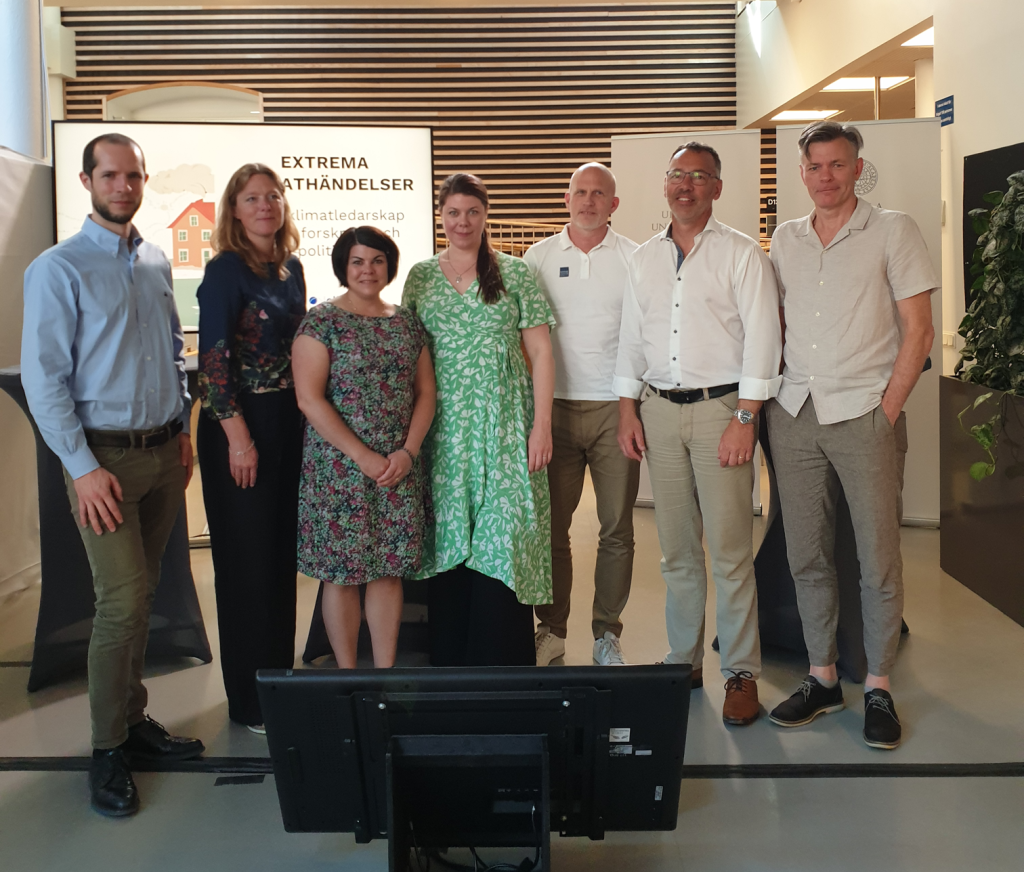
Utmaningarna kopplade till extrema väderhändelser och samhällsskydd blir ännu tydligare när expertmyndigheterna delar sin verklighetsbild. Riskerna Sverige står inför som följd av extrema klimathändelser handlar bland annat om matsäkerhet, tillgång till el och vatten, och tycks påverka samhällets alla funktioner. Forskningen lyfts fram som särskilt central och även tjänstepersonerna efterfrågar politiskt ledarskap och stabilitet. Det sista panelsamtalet som Mikael Karlsson modererar består av politiker från S, MP och C. Ytterligare en riksdagsledamot från L hade tackat ja men fick förhinder i sista stund. Inom oppositionen väcker frågorna om extrema klimathändelser och klimatanpassning engagemang, trots att anpassning har legat lågt på oppositionens politiska agenda. Det finns ett tydligt behov av samordning och samstämmighet både mellan olika politiska partier, centrala myndigheter och mellan lokal och nationell nivå. Politikerna är överens om vikten av att agera för att minska utsläpp och anpassa samhället utifrån ett förändrat klimat. Däremot går åsikterna isär i frågan om staten skall ha mer att säga till om på kommunnivå, eller om kommunerna bör få större frihet. Hela seminariet finns att se här:
https://live.mediaflow.com/25CB80WV1F
Forskningens roll för det demokratiska samtalet
CCL:s egna arrangemang tar slut onsdag kväll men Mikael Karlsson medverkar i flera samtal under torsdagen. Två av dessa handlar om forskning och demokrati, och arrangeras av Vetenskap & Allmänhet. Det första samtalet har titeln ”Öppnare vetenskap – en demokratisk kraft”. Det tar sig an frågor om forskning i en värld präglad av demokratisk tillbakagång, konflikter, klimatförändringar och kamp begränsade naturresurser. Mikael pratar om vetenskapens centrala roll i ljus av dessa globala utmaningar och det mediala utrymmet som ges till vetenskapsförnekande utsagor, i synnerhet kopplat till klimatförändringar.
Det nästa samtalet på Vetenskap & Allmänhets scen öppnar för att politiker på nationell nivå får ställa frågor till forskare. Mikael Karlsson får först möjlighet att prata om hur vi kan öka acceptansen för klimatpolitiska styrmedel genom bland annat styrmedelspaket och stegvis införing av mer stringenta styrmedel. Han frågas sedan ut av Liberalernas riksdagsledamot Helena Gellerman, som vill veta mer om hur vi kan skapa acceptans i klimatfrågan och få människor att inse allvaret i klimatförändringarna. Båda samtalen finns att se i sin helhet här:
Seminarierna i Almedalen är över för i år men jag är hoppfull om att samtalens viktiga budskap inte försvinner lika snabbt. Det finns ett stort behov av vetenskap om problem och lösningar kopplade till klimat- och miljöomställningen. Vidare har vikten av klimatledarskap nog aldrig stått högre på agendan, åtminstone i Almedalen. Framförallt visar veckan i Visby hur broar kan byggas genom dialog mellan olika samhällsaktörer. För min del var resan till Almedalen min första. Jag hoppas att mötespunkterna och samtalsytorna bli fler och inte färre, särskilt i en samtid där behovet av dialog och förståelse är så stort.

